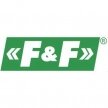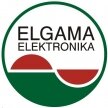-
Product Catalog
- Security and Surveillance Systems
- Automatic Circuit Breakers for Direct Current (DC) Circuits with Integrated Overload, Short-Circuit, and Voltage Stabilization Protection Functions
- Lighting with the help of electrical energy
- Automation and Control Systems
- Sealing profiles | rubber | gaskets | strips
- Inflatable Liquid Storage Tanks | Reservoirs | Bladders
- Inflatable rubber plugs for sealing high-pressure plumbing pipes
-
Electrical distribution and installation
- Electrical power | power cables | wires with copper conductors
- Electrical Energy Supply | Distribution Panels | Boxes | Accessories
- Smart Automated Products | Control | Transmission | Detection
- Modular equipment installed in electrical distribution boxes | panels
- Smart electrical network analyzers
- Power management and backup
- Fuse holder blocks
- Fuse disconnectors
- Fuses
- Electrical installation components
- Extension cords
- Industrial | domestic socket outlets | plugs | adapters for electricity supply
- High Voltage Equipment | Components 6kV | 10kV | 12kV | 20kV
- Underground Power Transmission | Overhead Power Lines
- Solar Energy Generation and Management Equipment
- HVAC control solutions for heating and ventilation.
- Special products and accessories
- Other products
- Safety tools
- Quality used products
Cylindrical fuses
-
Cylindrical fuses are electrical devices designed to protect electrical systems from overloads and short circuits. Their design and operating principle allow them to effectively interrupt the current when it exceeds a specified limit. These fuses are often used in industry, commercial premises, and households to ensure a safe and reliable power supply.
-
Read more
Key Features:
Construction: Cylindrical fuses have a cylindrical shape with metal or copper contacts, allowing them to be easily installed into special holders or switches. Their design is simple yet effective, ensuring quick current interruption.
Operating Principle: Cylindrical fuses operate on the principle that they contain a metal wire or fusible material that overheats and breaks when the current exceeds the allowable limit. This automatically cuts off the power supply and protects equipment from damage.
Rated Current: Cylindrical fuses are available in various rated currents, typically ranging from 2A to 30A or even higher, depending on specifications. This allows users to select the most suitable solution for their needs.
Materials: Most cylindrical fuses are made from ceramics, glass, or plastic, which ensure durability and resistance to high temperatures. The metal parts are usually made of copper to ensure good conductivity.
Indicators: Some cylindrical fuses have built-in indicators that show whether the fuse is functioning properly or has blown. This helps users easily identify problems and address them quickly.
Areas of Use:Industry: Cylindrical fuses are widely used in manufacturing equipment, motors, generators, and other industrial systems where effective protection against short circuits and overloads is necessary.
Residential Systems: They are used in home electrical systems, protecting lighting, appliances, and other devices from potential failures.
Commercial Spaces: Cylindrical fuses help ensure reliable power supply in offices, shopping centers, and other commercial spaces.
Advantages:Safety: Cylindrical fuses effectively protect electrical systems from potential hazards such as overloads and short circuits, reducing the risk of fire and equipment damage.
Reliability: High-quality cylindrical fuses ensure durability and stability even under harsh operating conditions.
Easy Replacement: Due to their design, cylindrical fuses are easy to replace, allowing for quick and efficient maintenance.
Disadvantages:Cost: Some specialized cylindrical fuses can be more expensive; however, their efficiency and durability often justify the investment.
Technical Knowledge Required: Although installation may be straightforward, proper selection and configuration of fuses may require some technical knowledge.
Cylindrical fuses are essential components that ensure safety and efficiency in electrical systems. They protect equipment from dangerous situations, reduce the risk of failures, and contribute to the long-term reliability of electrical systems. Properly selected and installed cylindrical fuses are necessary in any electrical network, ensuring stability and safety.No items found.
US IN SOCIAL NETWORKS
























